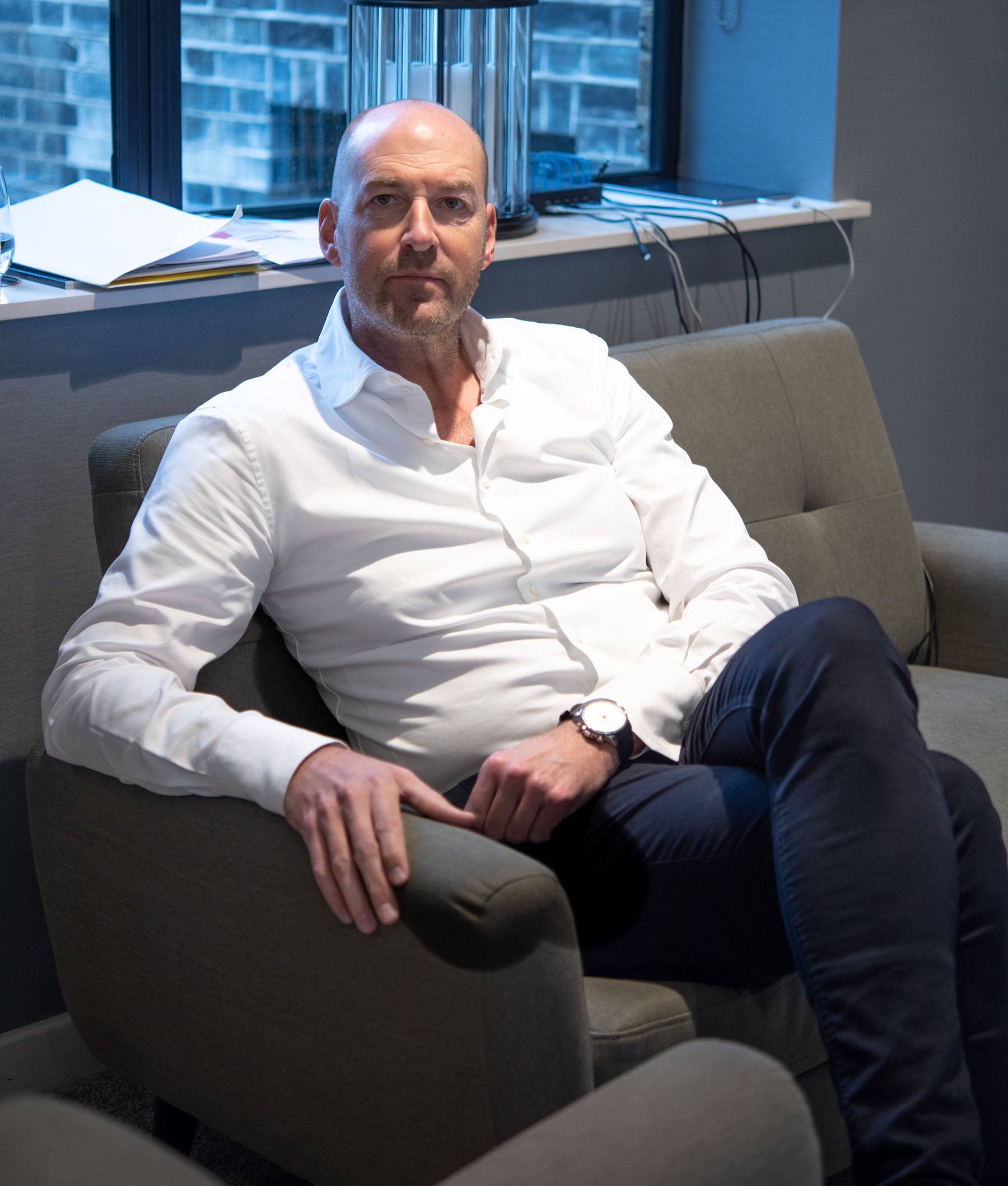
Early this year, on a special preview of 2020 IWC novelties, we took the chance to talk watch design, IWC heritage and future, and all things watchmaking with Christian Knoop, IWC’s Creative Director. At the time, all novelties had been under strict embargo — since then the covers have been lifted and you can re-familiarize yourself with them by visiting our IWC page. Without further ado, let’s get right into it.
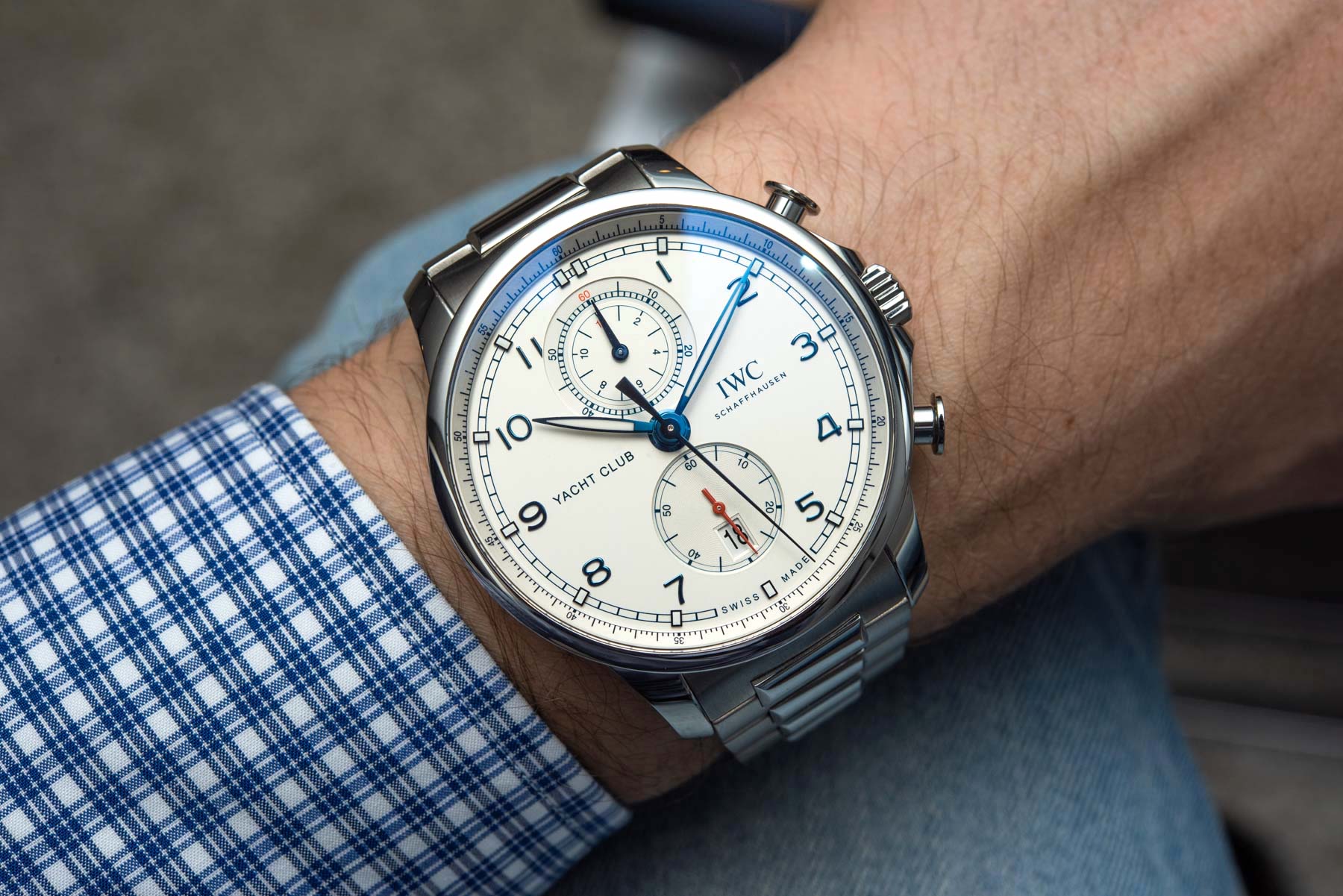 aBlogtoWatch: This year appears to be all about the Portugieser for IWC. Tell us a bit about the values and challenges this represented when designing these new additions to the IWC Portugieser family.
aBlogtoWatch: This year appears to be all about the Portugieser for IWC. Tell us a bit about the values and challenges this represented when designing these new additions to the IWC Portugieser family.
Christian Knoop: The Portugieser is, as you know, one of our most renowned collections, dating back to the 1930s, building on our reputation in marine chronometers. We actually started with the Royal Navy in 1917-1918, and the technology of these accurate movements have started the history of the Portugieser. A pocket watch movement was built into a wristwatch, which opened the way for us to really build our most prestigious line of the collection, dedicating it to our manufacture movements. We are excited to have the entire Portugieser collection with in-house movements with a re-design of the Portugieser Chronograph and its caliber 69. We were very cautious with the overall design with some minor changes to the case and the dial, including the addition of a new logo that we originally debuted in 2013.

aBlogtoWatch: When you say a new logo, how is it new?
Christian Knoop: It is new in the sense that the old logo had a serif in the Schaffhausen, and the new logo that now everyone sees as the current logo was a minor change based on enhanced readability. By bringing the Schaffhausen into something a bit more compact, with a sans serif font, and placing it closer to IWC, we improved the readability in applications such as sponsorships, boutiques, and so on. We also enhanced the readability of technical prints on dials, because once you don’t have the little serifs, it is better for legibility and the accuracy of printing on select surfaces. It looks crisper and more modern, which was the whole idea behind that. The new Portugieser Chronograph was among the last to receive this change.
aBlogtoWatch: You know you have fans of IWC and of Portugieser paying keen attention to the slightest changes to the watches they love, in this case, the Portugieser Chronograph. Redesigning such an important piece to the brand includes a host of other minute changes that can make a big difference.
Christian Knoop: That’s why we focused on further fine-tuning wearability, as well. This includes the introduction of new straps and a butterfly folding clasp, which allows for wearing this chrono on smaller wrists in a more centered position than when compared to the double-folding clasps we have on some other pieces. We realize that a certain percentage of these pieces we sell to women and they appreciate the improvement in wearability.
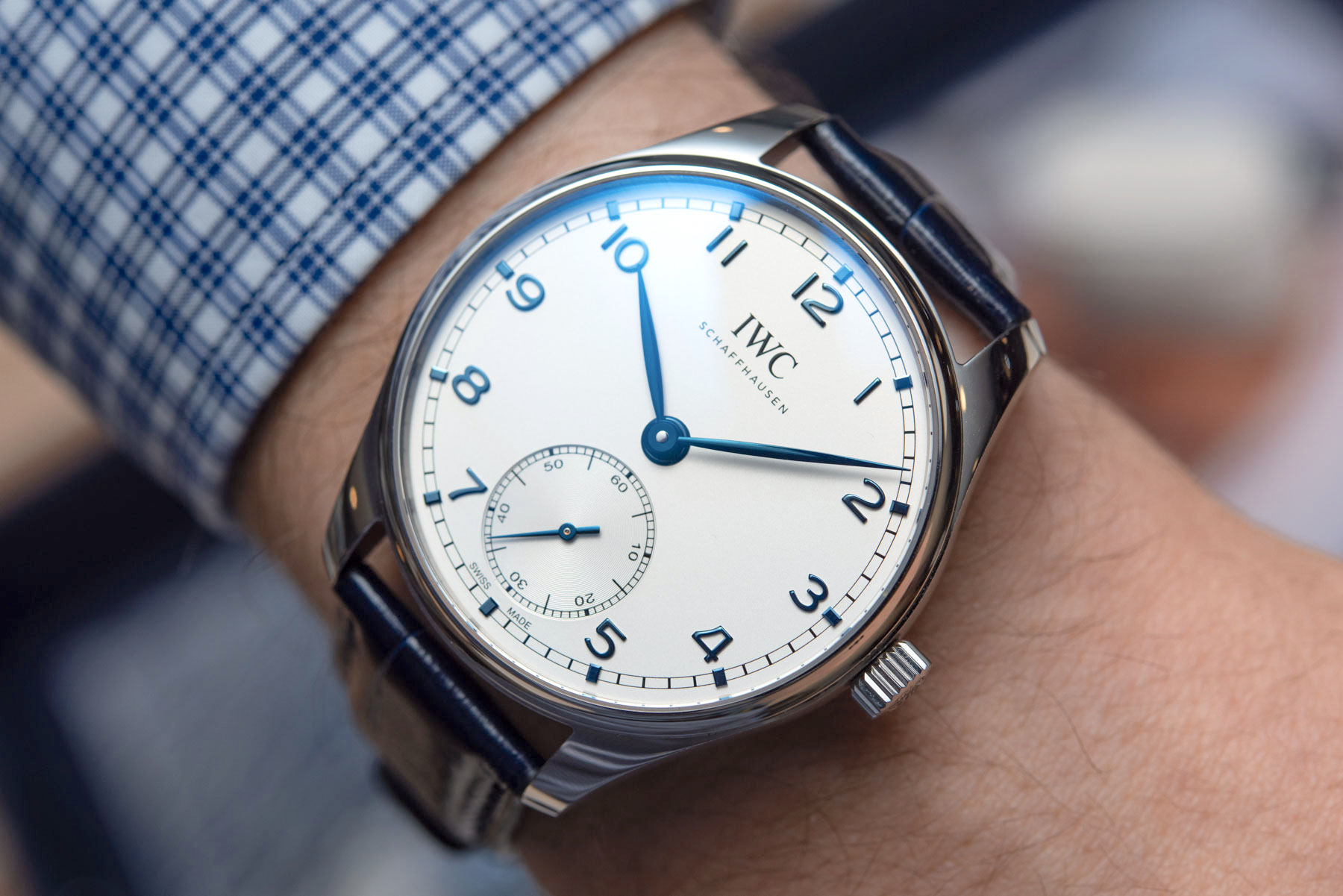
aBlogtoWatch: A very competitive and surprising piece for IWC this year is the new Portugieser Automatic 40.
Christian Knoop: This 40mm-wide automatic will be the smallest piece in the Portugieser range, just a bit smaller than the chrono, available in steel and 18kt red gold, for now. I’m very excited about this piece because it’s so reminiscent of the very first Portugieser, reference 325 from 1939. Its purity with its two hands and no date is just outstanding.
aBlogtoWatch: On that note, where do you — the Creative Director of a brand loved for its now-iconic designs — stand on the “date debate?”
Christian Knoop: [laughs] I’m a big fan of offering watches with no date windows. They just look cleaner and crisper. That said, I realize that some of our customers expect a date, and so we have to find the right balance with the pieces in any given collection to do that. This definitely is a piece that looks far better without a date. When we come to the more technical pieces, those bear the date beautifully.
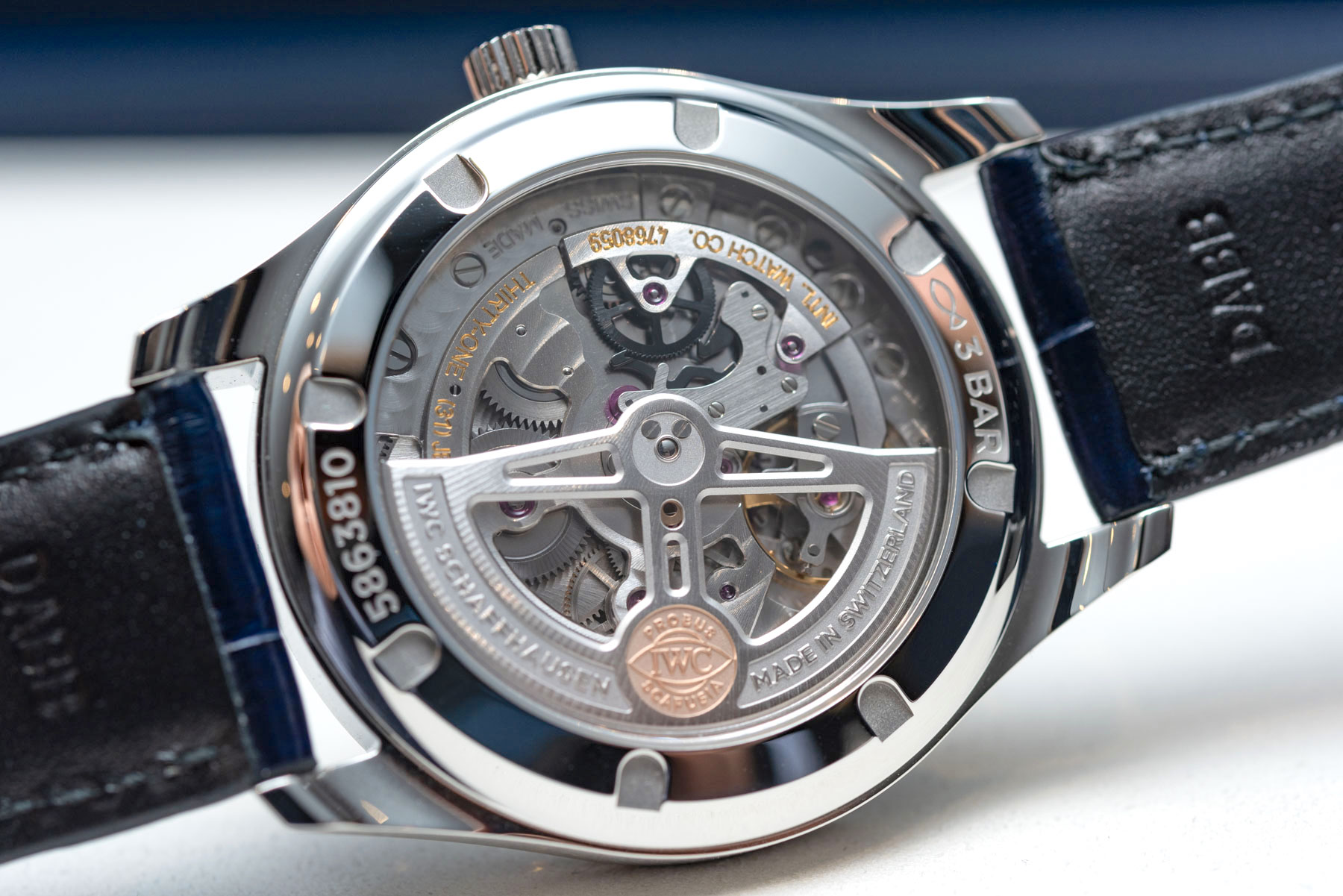
aBlogtoWatch: Can you tell us a bit about the 82-series manufacture movement that’s inside the Portugieser Automatic 40?
Christian Knoop: A big novelty is Caliber 82, which we are rolling out on the entire Portugieser, as it also works in the new small Portugieser Perpetual and the Moon & Tide. It’s a state-of-the-art, new generation movement that we ramped up carefully during the Jubilee, starting with the Da Vinci, and now it’s ready to be rolled out as a core movement.
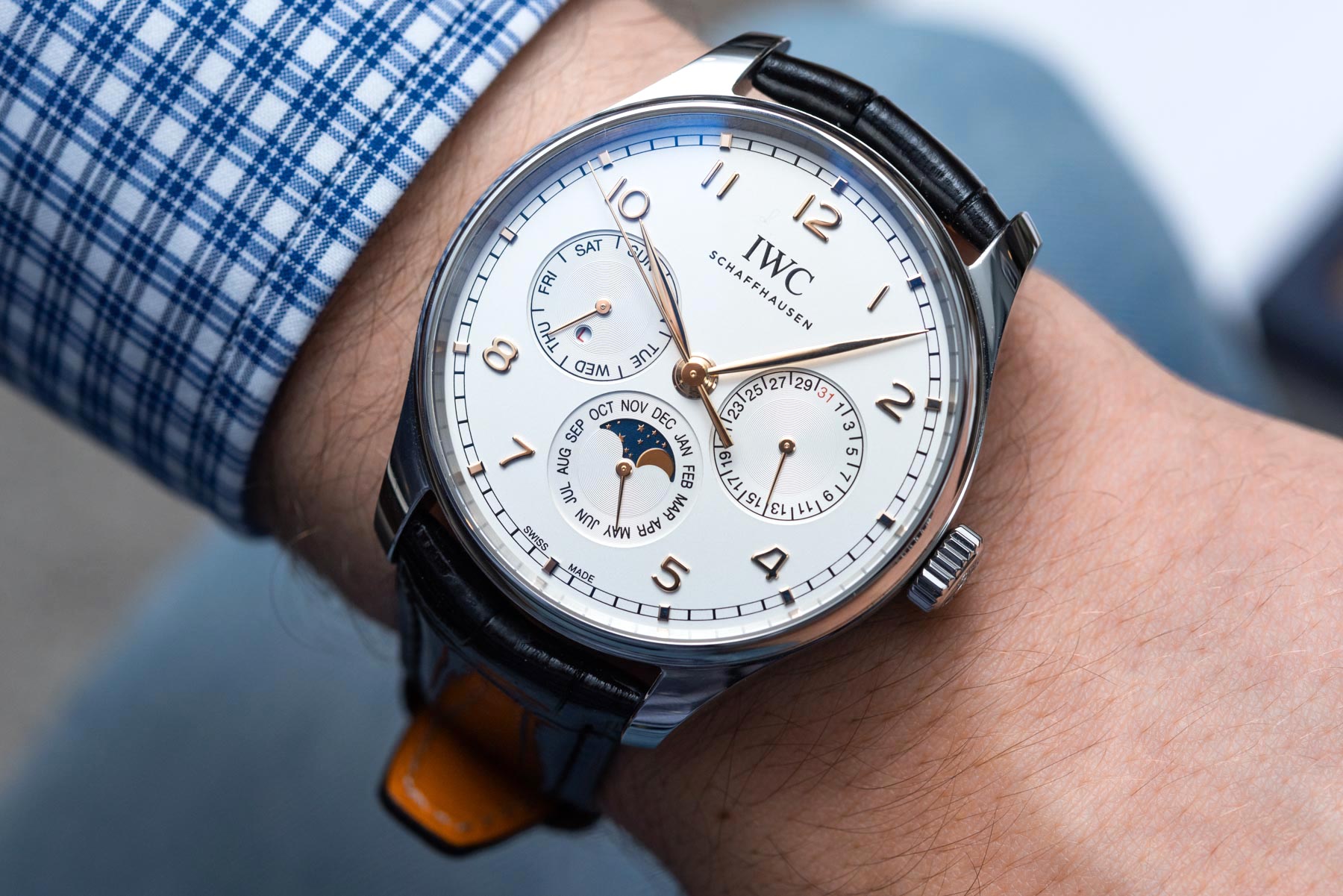 aBlogtoWatch: I see that there is a new, more scaled-back-looking Portugieser Perpetual coming for 2020.
aBlogtoWatch: I see that there is a new, more scaled-back-looking Portugieser Perpetual coming for 2020.
Christian Knoop: This is the new small Portugieser Perpetual Calendar. Again, wearability was one of the key drivers for this new collection. We realize that there is also a market for these relatively more compact watches — the Portugieser was always about big watches, but we believe that expanding it this way is a good move. On the Perpetual, we have the iconic, big Perpetual at 44mm wide, and we know so many love that watch. But in the end, some decide not to buy it simply for its size. This new piece, at 42mm wide, is meant to sit right between the Automatic 40 and the big Perpetual 44.
In terms of functions, it’s a proper IWC Perpetual. It’s based on the Kurt Klaus design, it’s programmed to 2499, and it’s fully synchronized across its indications without any corrector pushers in the case. We decided to have a smaller moon phase, lower the power reserve to 48 hours from seven days, and a leap year display in place of a four-digit year display. These modifications show that the Portugieser Perpetual 42 is not competing with the 44, but rather complements it.
The hierarchy really shows when you have all these novelties next to each other: the Automatic with one, the Chrono with two, the Perpetual 42 with three, and the big Perpetual 44 with four sub-dials. Price-wise, the Perpetual 42 is also offered in steel, which is not something that we do with the big Perpetual, so this comes just below £20,000 ($22,900).
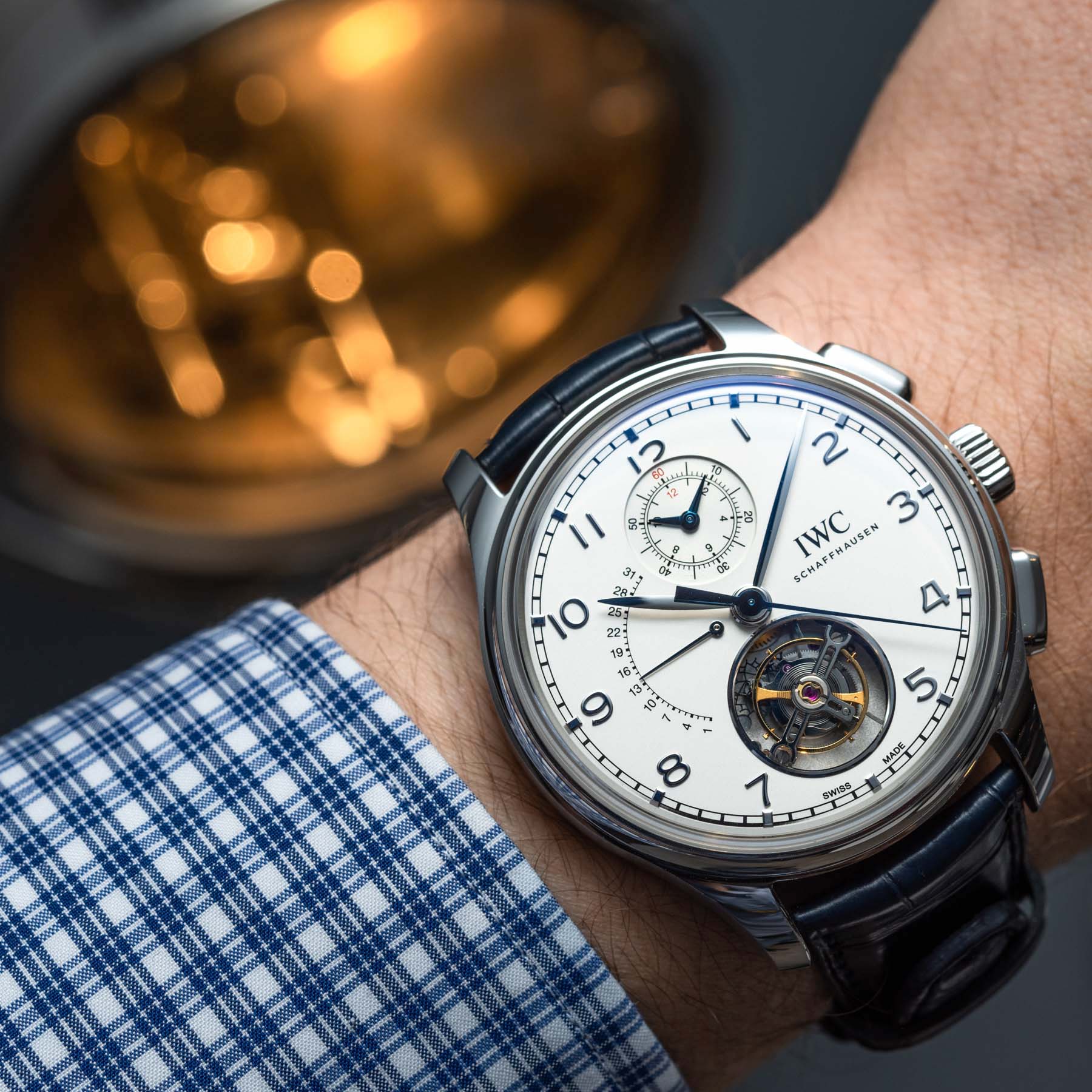
aBlogtoWatch: Taking a step back from the specifics of these novelties, we’d love to learn more about the processes and the work behind IWC novelties. When you set out to design a new Portugieser, where do you start? Do you define what makes a Portugieser? Do you start with the customer that you would like to cater to? Do you look at the competition? The history of the brand? How do you start?
Christian Knoop: There are three key drivers behind this new line. First, the manufacture calibers. We want to have all the watches featuring crystal backs showing off our manufacture movements — except for special editions, of course. We really have an assortment of movements — with the 69 chronograph, with the 82 automatic, with the 52 Big Automatic 7 Days, with Caliber 89 flyback chrono — that is extremely strong and is on a level to allow us to provide this eight-year warranty. That’s a major achievement.
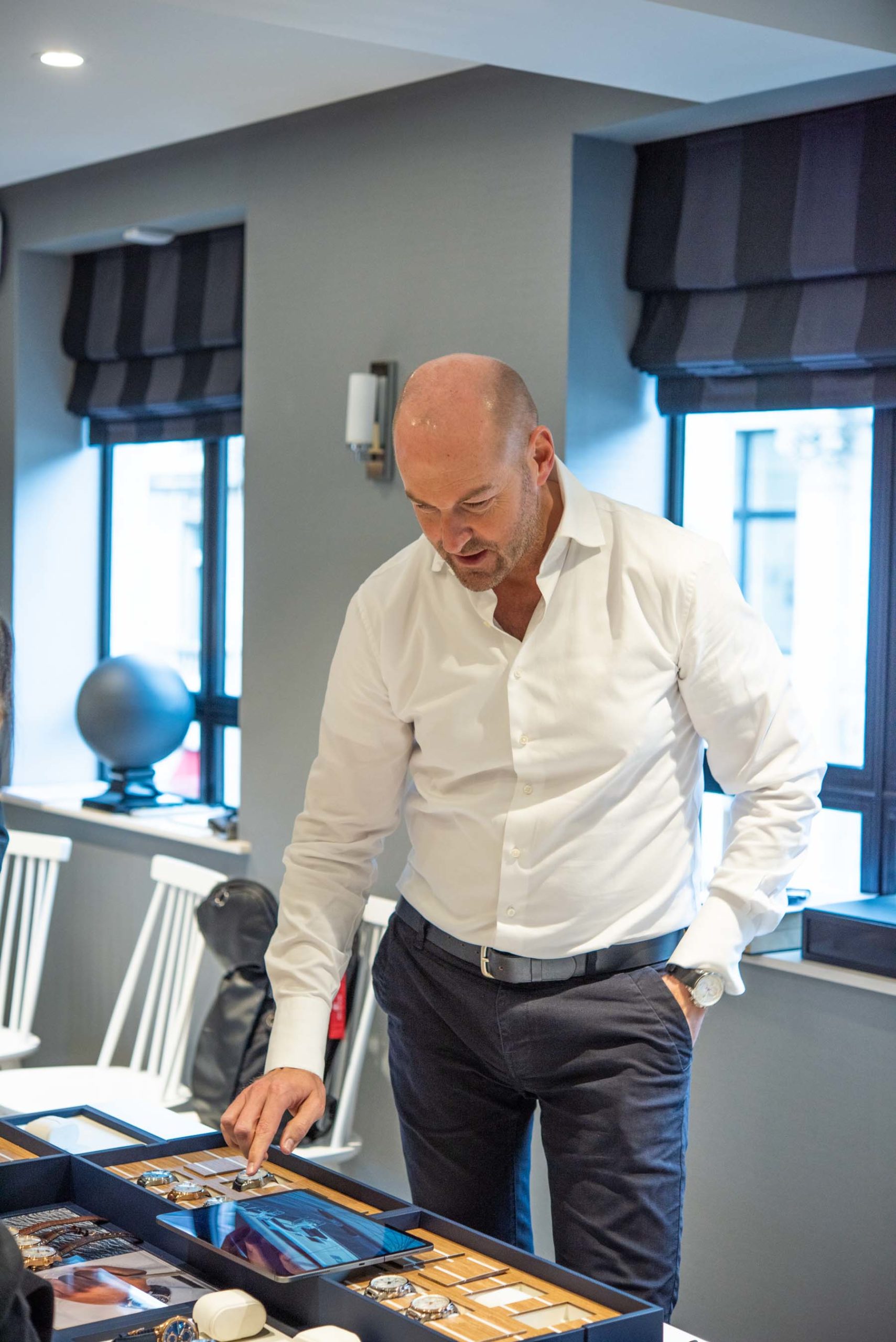
Secondly, we really wanted to make the Portugieser a contemporary line, emphasizing the fact that a watch like this has a design inspired by the past, but it nevertheless looks modern and contemporary. The yachting and brand partnership pieces (to be launched later this year) further stress this, as they are not just pointing back to the past, but make a contemporary sailing statement. It’s really about being modern with timeless aesthetics to fall back on.
Third, we have identified some strategic gaps in the collection for a small automatic. We had similar designs but in hand-wound pieces that were all-around 43mm, thus limiting the clientèle. We clearly identified what the range should be, how the larger and smaller perpetuals fit in, and how the Portugieser Automatic 40 adds beautifully to that. When you see these all sitting together, you appreciate how they all blend seamlessly with the core DNA of the Portugieser collection.
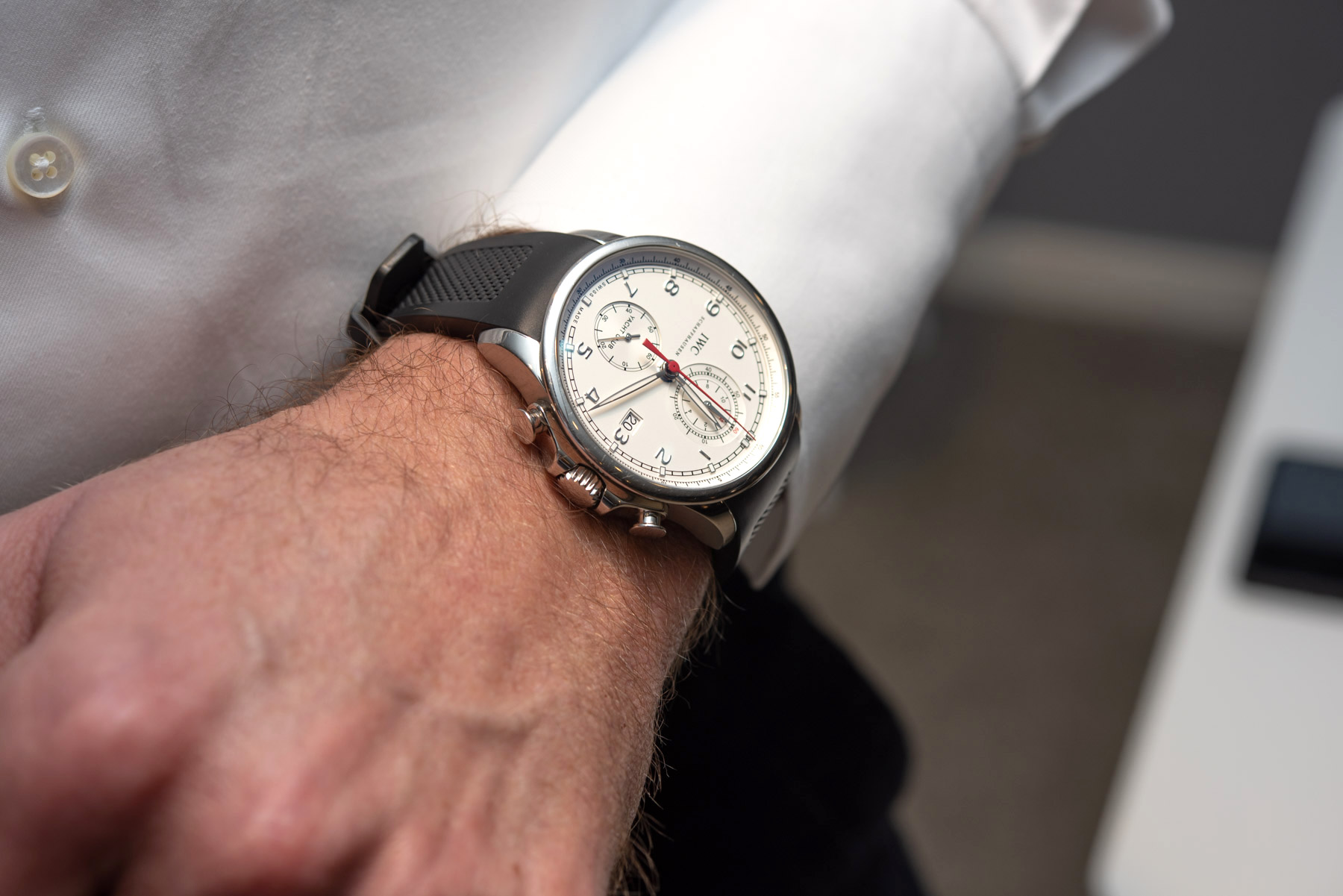
aBlogtoWatch: Let’s talk Yacht Club Chronograph. I see changes that keen-eyed Yacht Club fans will notice. How has it been modified beyond size changes?
Christian Knoop: Yes, the Yacht Club is now also revised, you could call it a third generation. I’m still wearing the 1st generation Yacht Club, one of the first watches I got my hands on when I joined IWC 12 years ago. We launched the first-gen in 2010, and we’ve now revised the design to make it slightly (1mm) smaller, improving wearability without losing the character. We also reviewed its proportions — to make the bezel slightly slimmer, the dial has its date moved to the 6 o’clock, producing better balance with the Yacht Club logo at 9. We also removed the big red stop hand [chronograph hand] and just installed a small red seconds hand; we believe this adds up to something that looks even classier.
aBlogtoWatch: Given the ever-greater popularity of steel sports watches, I’m not surprised to see the Yacht Club Chronograph is available on a steel bracelet.
Christian Knoop: Absolutely. We created this bracelet because we believe there is a potential for steel bracelet watches from IWC. Again, wearability was a key concern for us: it is a steel bracelet with a fine adjustment system that offers 5mm of travel, making this bold watch sit very comfortable on the wrist.
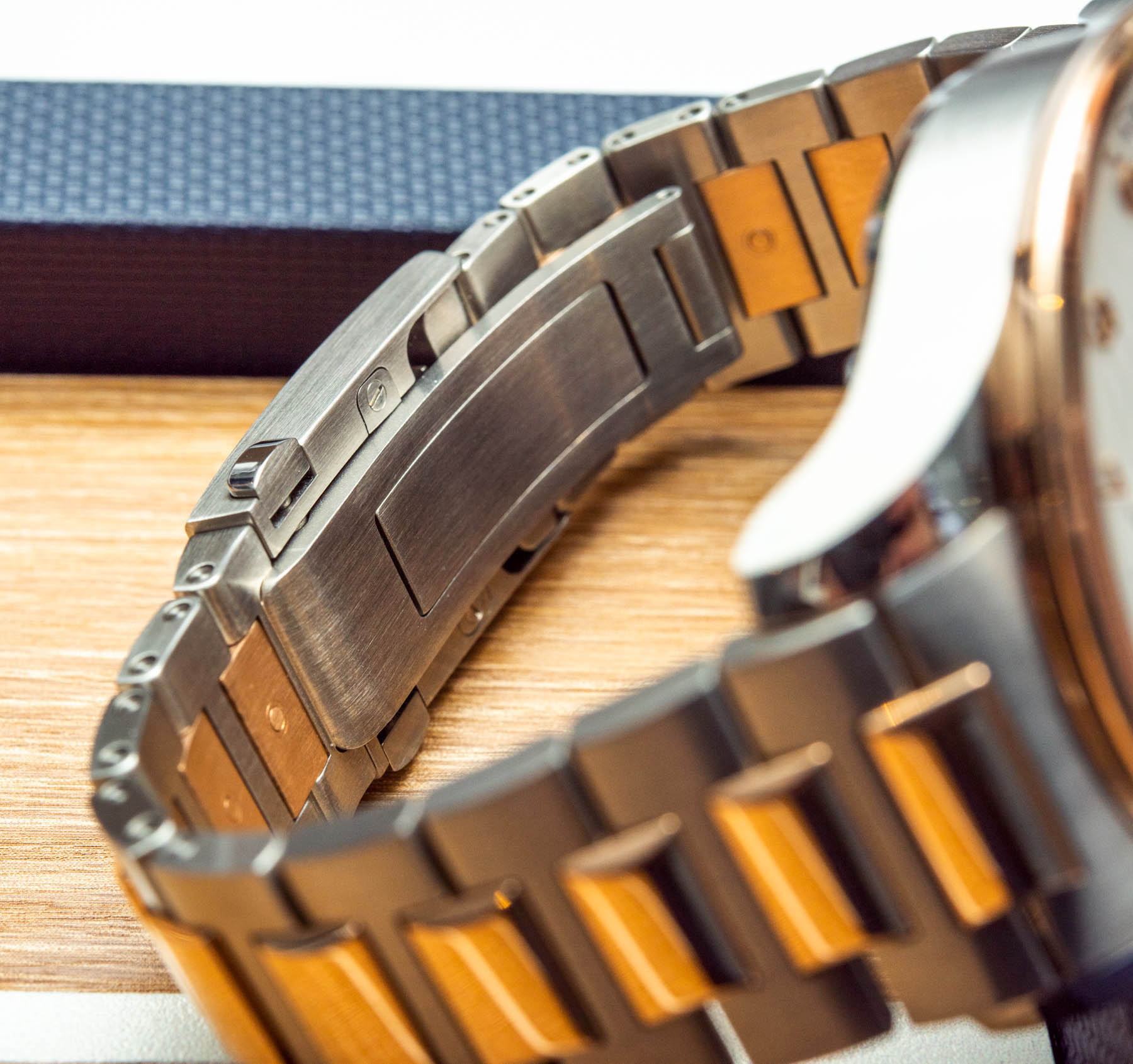
aBlogtoWatch: As I turn the watch around, I see this on the caseback: “6 BAR.” Why 6 bars of water resistance [when the norm is 3, 5, or 10 bars for sporty-elegant watches]?
Christian Knoop: That’s a good question and one that I’m not able to answer to the full extent. We had 12 bar with the Ingenieurs of the time, and this sat between those and the 3 bar we had on the rest of the watches. What we found is that 6 bar, which is 60-meter equivalent is a solid level of resistance to use it for swimming, snorkeling, even for easy diving. Especially in this yachting environment, where it is designed for jumping in the water and not have to worry about the piece. It’s a robust watch.
aBlogtoWatch: The other day my friend and colleague Zach Piña posted one heck of an all-gold Ingenieur SL on his personal account and we started chatting about it. He wanted me to ask you what, if any, plans you have for the IWC Ingenieur’s foreseeable future.
Christian Knoop: Yeah, that’s a great-looking piece. The thing is that this look is so popular and so visible at the moment. For sure, we have thought about bringing the Ingenieur back, but this maybe is not the ideal point in time. This will appear like a kind of AP-copy to most of the people who are not that familiar with the history, and that even includes some of our customers who have been fans and connoisseurs of our other designs. We are watching this and we think about a historic Ingenieur a lot, but I don’t think it’s the right time to come up with something like this.
aBlogtoWatch: Because everyone else thinks it’s the right time…. But you’re right, people do tend to get angry when they see brands now enter (or re-enter) the market of luxury steel sports watches with integrated bracelets. The problem is that nobody wants to wear a copy and nobody cares about history — the story of the recently and beautifully resurrected Chopard Alpine Eagle and Girard-Perregaux Laureato prove this.
Christian Knoop: Yeah. As we discussed a few minutes ago, we have addressed the absence of bracelet watches and we are to be bringing out bracelets on all core collections. But we rather introduce something like the Yacht Club, than to try and go with all the others on the all-steel watches from the seventies.
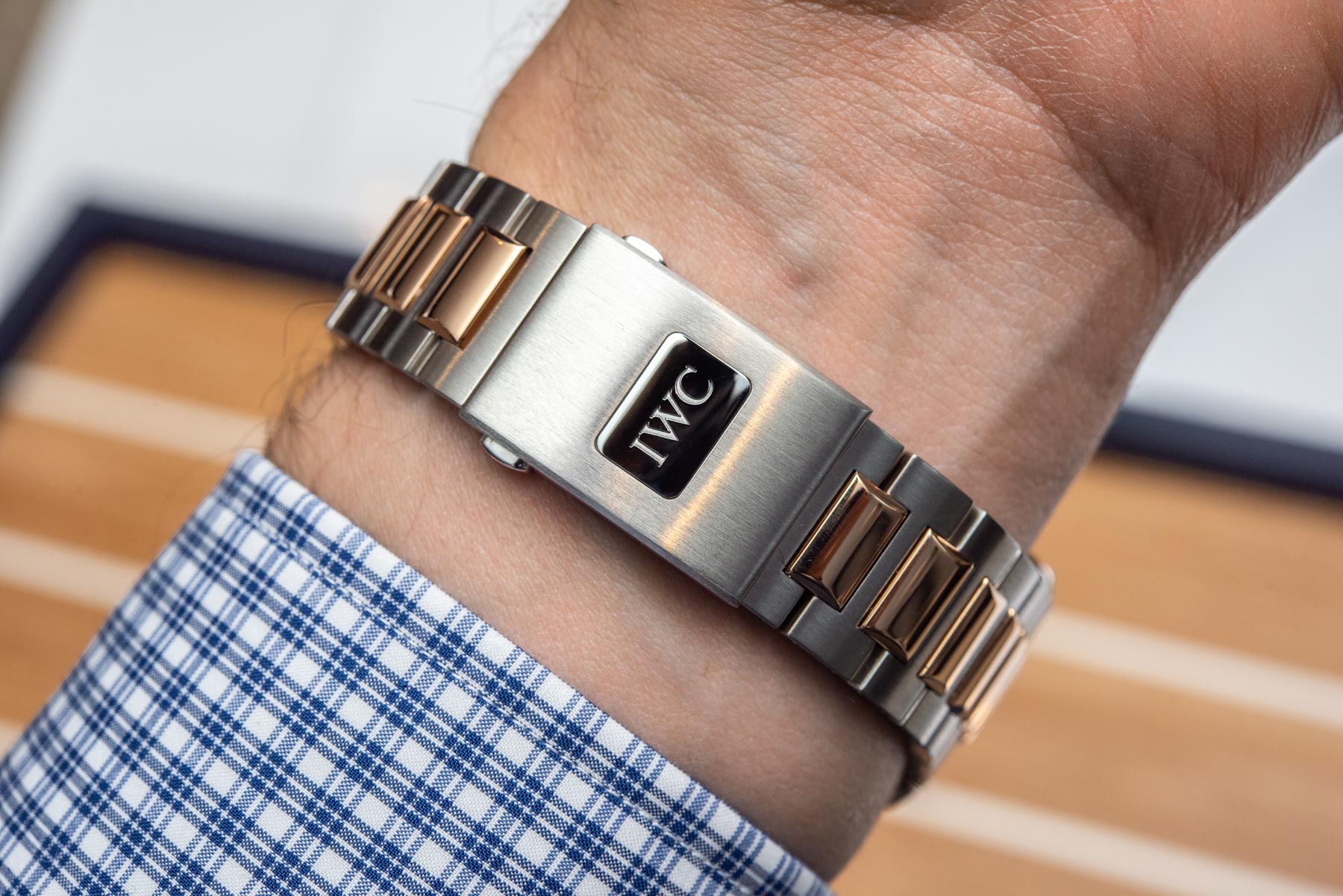
aBlogtoWatch: Are you planning new bracelets in titanium and other materials? I see one there in two-tone, mixing gold and steel.
Christian Knoop: Yes, we are going with two-tone for now. Titanium — we’ll have to see, as the Portugieser is not a titanium collection, but on other technical collections, I certainly wouldn’t exclude that.

aBlogtoWatch: When I go to IWC.com, it gives a good summary of how many pillars IWC stands on. From Pilots and Portugieser through Da Vinci to Portofino, and more. It’s a very well-established brand. How is it possible to add to something that is already so complex — what is your strategy when it comes to adding to all this?
Christian Knoop: When you look at our Portugieser 2020 collection, it really shows how we work. We are very serious about respecting our DNA, however, we have been able to add interesting elements to it. We create a new look, new partnerships, new movements, new complications such as the Moon & Tide — all this is within the realms of Portugieser, but with all these additions. This was exactly one of the challenges, we saw how well-established the Portugieser had already been from simple chronograph to high-end complications…. “What shall we do with that?” When you look closer, you see that we have nevertheless been able to improve upon these as individual products, where everyone thought it had already been perfect. We enhance wearability — as the size was an issue with some models — and we fill strategic gaps in terms of pricing, and then we add new design flavors with the bracelets, redesigned dials, and collabs such as that with Orlebar Brown or limited lines and boutique editions.
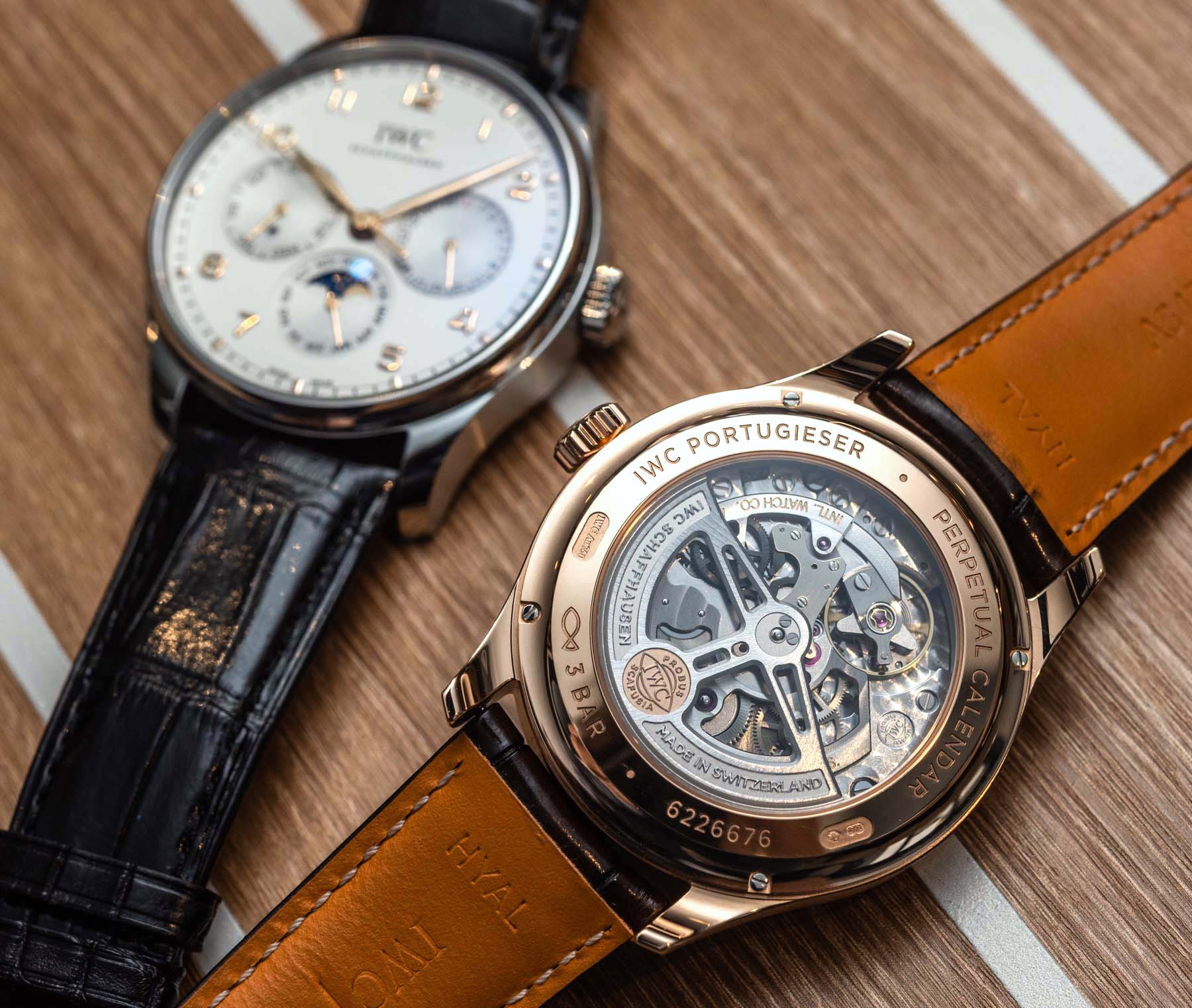
aBlogtoWatch: To keep a long question short, where do you see complications going within IWC?
Christian Knoop: When you look at what IWC stands for in watchmaking, you see that we have a very strong track record of all kinds of chronographs. We are probably one of the brands selling the most chronographs in this segment, we have variations like the double and split chronographs — and so this is one thing that we built on with the Portugieser. The other major thing is, of course, calendars. We are famous for the Kurt Klaus calendar from the 1980s and since then we have continuously expanded the calendar variations that we offered and that applies to the new Portugieser Perpetual Calendar with its triple subdials.
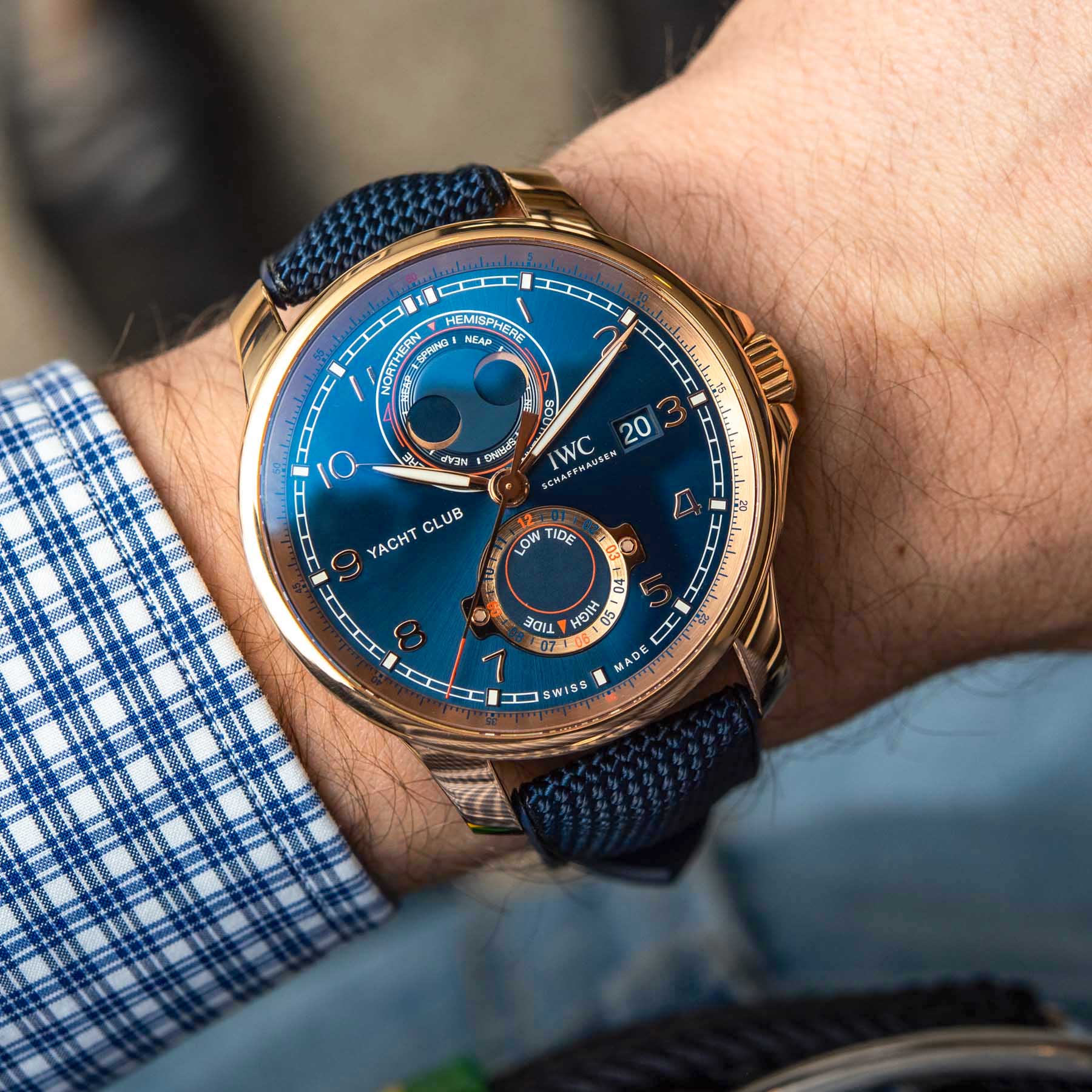
Then you have a very interesting piece with the new Yacht Club that combines our moon phase with a moon and tide function. You have the iconic IWC moon display with both hemispheres, which is an IWC patent, and we enhanced this with spring and neap tide displays. Then at the 6 o’clock position, you have the tide display with a little rotating disc with the tide cycle of about 12 hours and 25 minutes — and when you adjust it to your current location or port location, this will run automatically and show you the next high tide. So now (see image above) the high tide would be at 06:30.
aBlogtoWatch: So the moon phase and the date are connected, but the tide indication operates independently? And you adjust the whole watch through the crown with any hidden pushers?
Christian Knoop: Yes, you do only use the crown to adjust all the functionalities of the Portugieser Yacht Club Moon & Tide — a nod towards the renowned crown-only setting of IWC perpetual calendars. And yes, the tide is separate from the date and the phase of the moon. The reason for that is the moon and date being intertwined — but the tide display you will want to adjust according to your current location without interfering with any other function of the watch.
Personally, I’m super excited about this piece because it connects the history of sailing and navigation from the very beginning into something that is a tangible yachting and sailing instrument. We never had this before and we do this in a very recognizable way — because I am not aware of any other watch on the market that combined the moon and the tide this way.
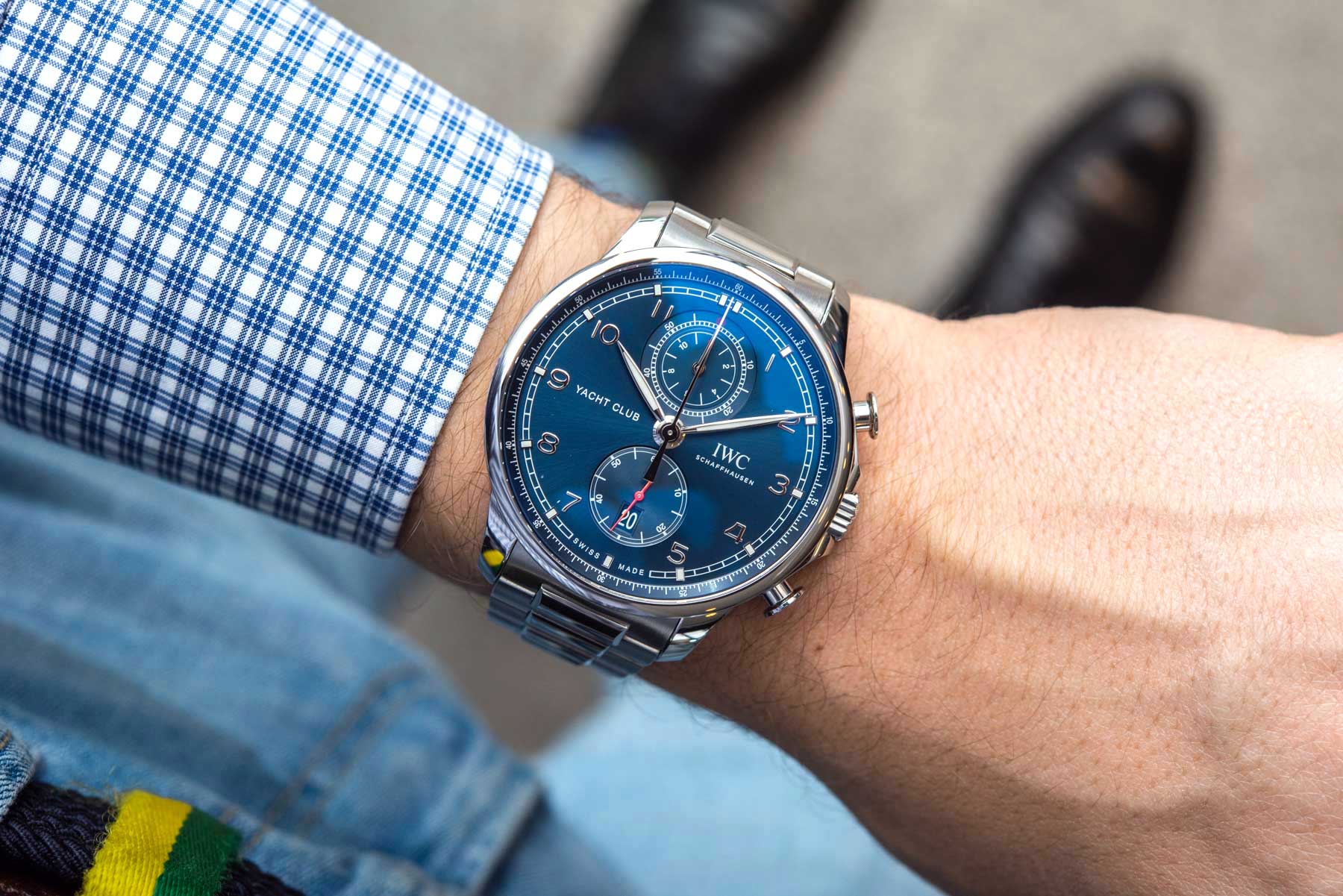
aBlogtoWatch: As a creative-minded individual, when you see recent years’ vintage craze, do you find it repetitive or rather inspiring and exciting?
Christian Knoop: We have different collections and last year was dedicated to our pilot’s watches and Spitfire watches — which is a vintage story. However, for the Portugieser we wanted it to be a very contemporary watch with timeless aesthetics. Because when you talk about something historic like the Spitfire from the 1940s, this is certainly a vintage story that the watch has to match. But with Portugieser we wanted a different flavor and embed it in a contemporary lifestyle environment where another partner comes in with Solaris yachts from Italy. This will also help us to make the world of Portugieser more tangible — we are currently building an IWC sailing yacht with bespoke colors, fabrics, watch displays, and IWC design elements throughout its 55-foot structure. Very elegant in blue and white with some unique details that are inspired by IWC limited edition timepieces, dials, straps, and more for a most genuine link between Portugieser and yachting.

aBlogtoWatch: You have the vintage Pilot but you also have a contemporary alternative with Top Gun, an effortlessly cool collection that is a fan favorite for many. However, we always only see the finished piece as it is presented to the world — so, when the time comes for a new Top Gun piece, what is the process from licensing to finished piece, where do you begin?
Christian Knoop: The company is the only watchmaker to hold the license for the Top Gun name from the US Navy since 2007. Since last year we have opened a completely new chapter for the Top Gun collection by working together with Navy squadrons in a limited fashion. Here it was the pilots of these squadrons who reached out to us and not the other way around. They do tend to have very specific requirements for the watch: some squadron pilots want a ceramic watch, others request a steel-cased version, some want a relatively smaller case size, and so on. Strap-wise they almost always want leather or textile. So we do a lot of back and forth with renders and samples to fine-tune Top Gun for the needs and requirements of actual Top Gun pilots.
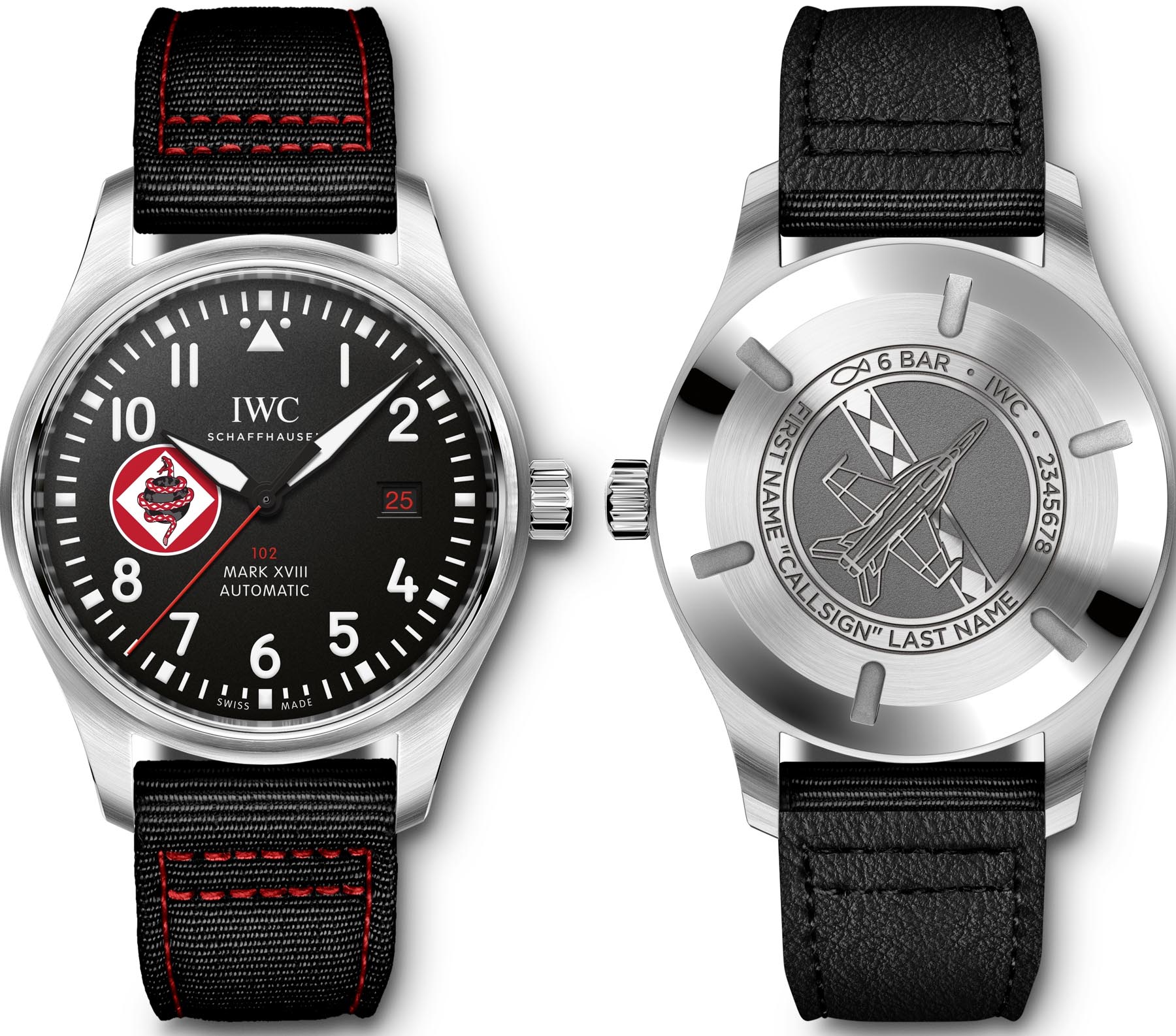
A specially produced IWC Mark XVIII Top Gun designed in collaboration with and made exclusively for the Diamondbacks squadron.
Therefore we really do get these pieces on the wrist of Top Gun pilots and with this, we split Top Gun into commercial and professional lines. For example, we did the Top Gun instructors’ version that is for select Top Gun members only with personalized engravings. We are also part of Tailhook the biggest convention for US Navy pilots in Reno every year, exhibiting there, presenting, and selling watches there. We really believe that this helps with the credibility of our Top Gun instrument watches.
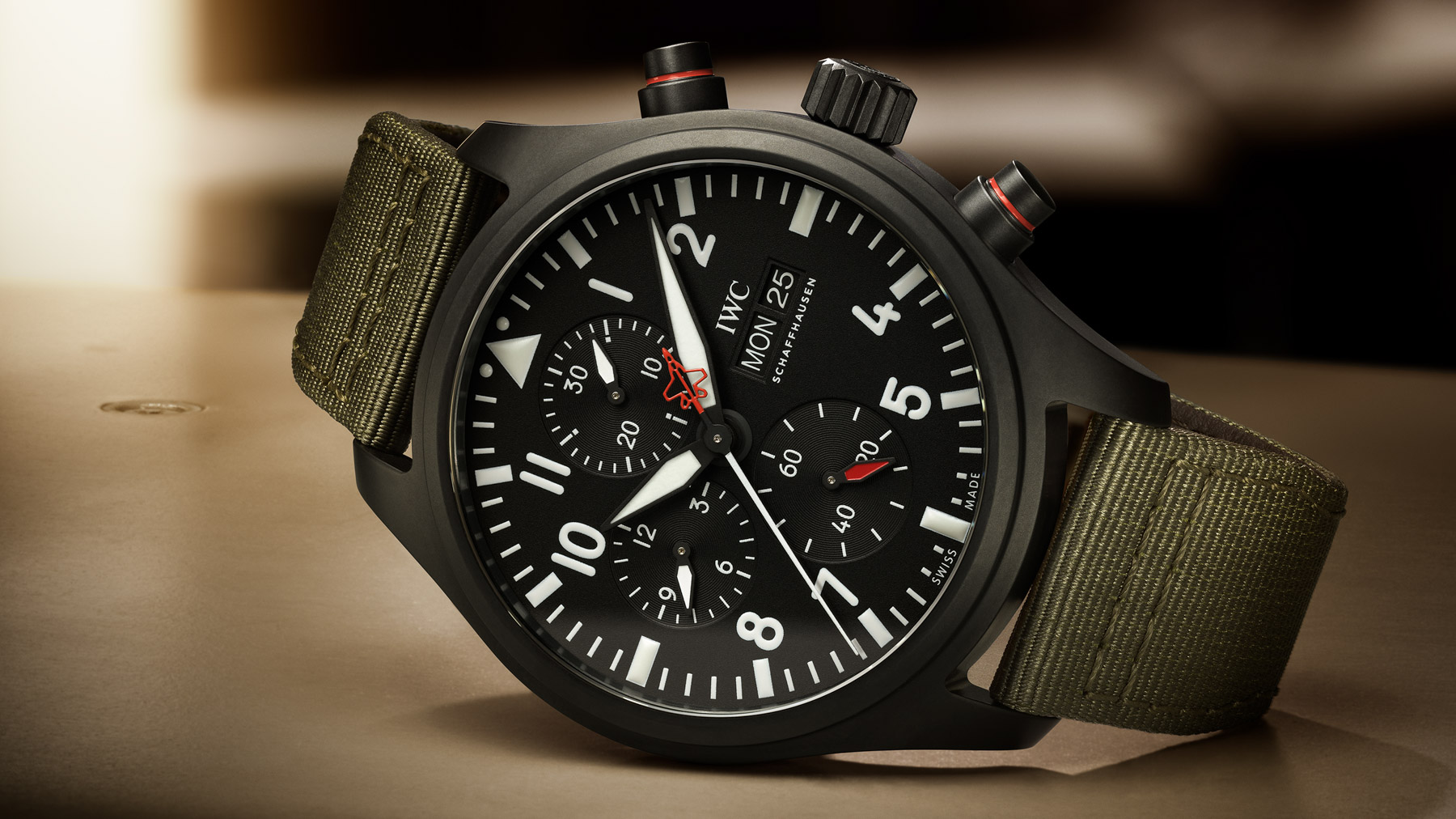
The new and commercially available Pilot’s Watch Chronograph TOP GUN Edition “SFTI,” inspired by the “Strike Fighter Tactics Instructor” watch designed for the US Naval Aviation Community in 2018.
aBlogtoWatch: Christian, we would love to and could certainly go on to yet greater depths into the world of IWC. For now, thank you for your time and your insightful answers — hope to be able to catch up with you soon.
Christian Knoop: Thank you very much, David, for looking forward to the next one.

